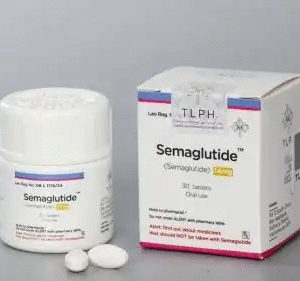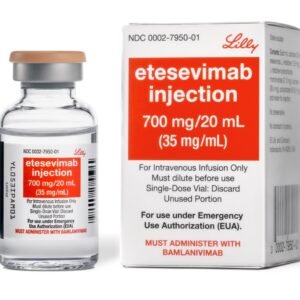CADN,INN:Irbesartan
Effects and efficacy:
Used to treat essential hypertension. Treat type 2 diabetic nephropathy with hypertension. Relieve proteinuria symptoms.
Usage and dosage:
Irbesartan capsules/Irbesartan tablets are taken orally. The recommended starting dose and maintenance dose are 150 mg once a day. When blood pressure cannot be effectively controlled, the dose can be increased to 300 mg once. It can be used alone or in combination with other antihypertensive drugs. Please follow the doctor’s advice for details. For severe hypertension and when the blood pressure drop after the increase in medication is still not satisfactory, a small dose of diuretics (such as thiazides) or other antihypertensive drugs can be added. Please follow the doctor’s advice for details. The recommended initial dose and maintenance dose of Irbesartan dispersible tablets are usually 150 mg per day, and diet has no effect on medication. In general, 150 mg of Irbesartan (once a day) can better control 24-hour blood pressure than 75 mg, but for special patients, especially those undergoing hemodialysis and those over 75 years old, the initial dose can be considered 75 mg. Patients who cannot effectively control blood pressure with 150 mg of irbesartan (once a day) can increase the dose of this product to 300 mg, or add other antihypertensive drugs, especially the addition of diuretics (such as hydrochlorothiazide) has shown an additive effect. In hypertensive patients with type 2 diabetes, the initial treatment dose should be 150 mg (once a day), and the dose should be increased to 300 mg (once a day) as a good maintenance dose for the treatment of nephropathy. Clinical studies have shown that this product can benefit the kidneys of hypertensive type 2 diabetic patients. In the study, irbesartan, when necessary, can reduce the patient’s blood pressure and reach the target value when added with other antihypertensive drugs. Precautions for special populations Insufficient blood volume: Patients with insufficient blood volume and/or sodium should correct the symptoms of insufficiency before using this product. Patients with renal impairment: Patients with renal impairment generally do not need to adjust the dose of this product, but for patients undergoing hemodialysis, a low dose (75 mg) can be considered as the initial dose. Please follow the doctor’s advice for details. Patients with liver impairment: Patients with mild to moderate liver impairment do not need to adjust the dose of this product; there is currently no clinical experience for patients with severe liver impairment. Please consult a doctor before taking the medicine. Elderly patients: Although 75 mg can be considered as the starting dose for elderly patients over 75 years old, the dose does not usually need to be adjusted for elderly patients. Please follow the doctor’s advice for details. Children: There is currently no safety and efficacy data for this product in children. Please follow the doctor’s advice for medication.
Adverse reactions:
Common: dizziness, flushing, musculoskeletal injuries and nausea, etc. Uncommon: orthostatic hypotension, indigestion and diarrhea, etc. Rare: allergic reactions (rash, urticaria, angioedema) and cough.
Drug contraindications:
Allergic to this product is prohibited during lactation, prohibited in late pregnancy, prohibited in early pregnancy, use with caution
Share:
Products
Our offers
Health Classification
Let us work together to protect precious health



























